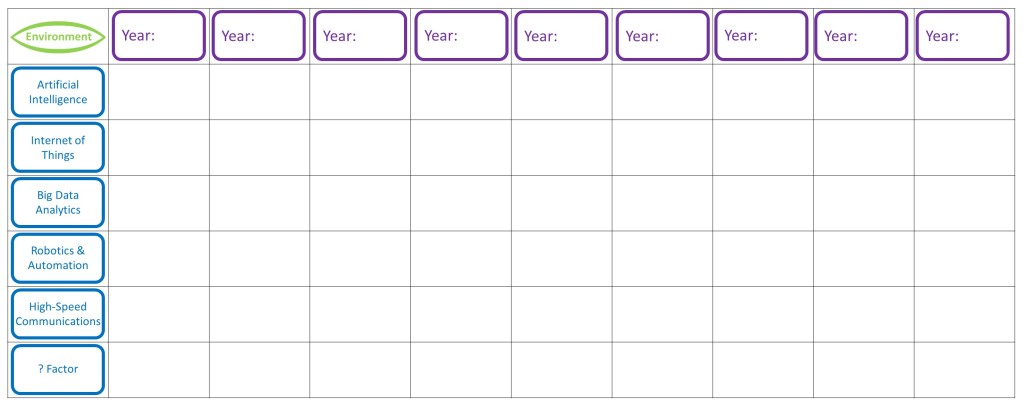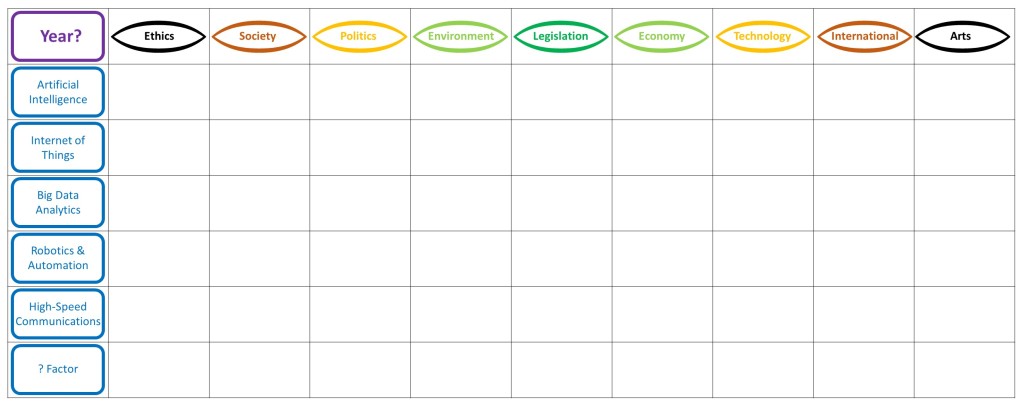Fully Automated Luxury … Dancing? (A futuristic conspiracy theory in the making)
Vic Grout, Professor of Computing Futures, Wrexham Glyndŵr University
Download the PDF version: Fully Automated Luxury Dancing – Download Version 1
[Note/Disclaimer: Some of the discussion in this piece is shockingly brief. A limit of 10,000 words was planned and (just) adhered to.]
We’ve encountered Michael Moorcock’s masterpiece, Dancers at the End of Time, before on these pages: both as an example of sci-fi doing what it does best (providing a blank canvas for a bigger discussion) and the problems futurologists have with not seeing key disruptive technology (the Internet, in Moorcock’s case). But, for this post, an entirely different question to ponder: who exactly ARE ‘The Dancers’?
Because answering that puzzle (there aren’t that many clues to go on in the novel itself and obviously it is only a story) takes us to considering problems in (apparently) entirely different fields: environment, politics, economics, etc. (which is the important point really, of course) and may lead us to a view of the future quite at odds with current thinking right across the political spectrum. Specifically, what’s usually wrong with long-term ‘futuristic’ political and economic prophesising? Particularly the very well-intentioned left-wing stuff. What’s the one thing that everything from Karl Marx’s Das Capital to Aaron Bastani’s Fully Automated Luxury Communism appear to take for granted? (Spoiler alert: in simple terms it’s the belief that just because a political/economic system’s crap, it will naturally yield to something better – but we’ll come to that.)
Continue reading






